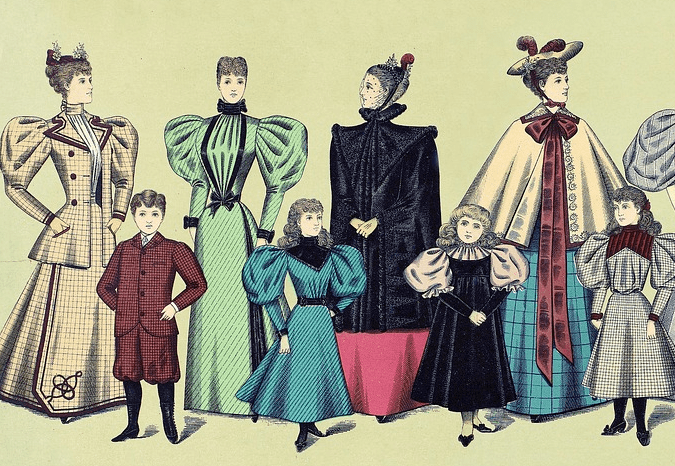
We offer a PhD position for the project The “New Sublime”: A Reappraisal of Fashion’s Decay in the Era of Ecological Crisis, within DECADOCS Marie Sklodowska-Curie Actions Doctoral Networks (MSCA-DN), a pioneering research and training programme aimed at reinterpreting the concept of decadence. Traditionally associated with decline, the term will be explored through new perspectives, focusing on sustainability, transnationalism, and sensoriality. DECADOCS network involves ten Universities across Europe. The programme offers tailored intersectoral training in collaboration with museums, archives, galleries, and other partners, reinforcing its scientific and social impact.
The “New Sublime”: A Reappraisal of Fashion’s Decay in the Era of Ecological Crisis intends to understand contemporary processes of decaying garments as a legacy of 19th-Century decadent fashion. The process of decaying garments or textiles remains regretfully neglected in the context of decadent fashion, despite its potential to bear on sustainable processes. The project renegotiates the relationship between material embodiments of decadence and sustainability, with the aim to contribute to the cultural and material history of fashion through the analysis of textile conservation or damage on one hand, and, on the other hand, to reshape the relationships between sustainability and the fashion industry. It also aims to involve a wider audience through a site-specific installation. One of the foundational tasks of the project will be to involve archival research (examining, and analysing primary historical sources, such as documents, photographs, and garments). The project will also focus on design practices, and fashion curation, and includes visits to fashion industries, field trips to research centres and fashion museums in Portugal, and Italy.
The candidate will receive comprehensive mentoring and training. In addition to local supervision and support, the successful candidate will receive benefit from an extensive programme of doctoral training and access to an interdisciplinary network of scholars and researchers exploring different aspects of decadence from the nineteenth century to the
present. The successful candidate will write a thesis of approximately 100,000 words, and co-curate an installation, presenting results to the public.
Supervision for this project will be divided equally between Universitade Lusófona, Lisbon, Portugal (Professor Alexandra Cruchinho) and Università Iuav di Venezia, Italy (Professor Alessandra Vaccari), with a 5-month period of secondment at the Zenzie Tinker: Textile Conservation Studio (Brighton, UK) and a 4-month period of secondment at the
Fondazione Pistoletto (Biella, Italy), where the successful candidate will receive additional training and support.
The position lasts for four years; the successful candidate will get a temporary position of one year with the option of renewal for another three years; prolongation of the contract is contingent on sufficient progress in the first year to indicate that a successful completion of the PhD thesis within the next three years is to be expected.
A university PhD training programme is part of the agreement, and the candidate will be enrolled in Iuav School of Doctorate Studies, and Media Arts and Communication at Lusófona University.
The offer starting date is January 2026.
We are looking for enthusiastic and talented candidates, with:
– A master’s degree in Art History, Conservation, Fashion or related fields
– A strong academic background and upward trajectory
– Proactive attitude and excellent interpersonal skills
– A clear interest in archival research
– High level of proficiency written and spoken English (other European languages, are a plus)
– Clear interest in fashion history and material cultural
– Clear interest in collaborative multidisciplinary research
– Strong sense of responsibility and commitment to environmental sustainability
Key responsibilities
As a PhD student working on this project, you will contribute to researching the role of fashion’s decay in the era of ecological crisis. The position is available for 48 months and the key responsibilities will include:
– To manage and carry out the research project, including:
o Archival research with a focus on damaged garments;
o Exploration of current practices for damaging garments;
o Guidelines improving sustainability for the fashion industry;
o Co-curate a fashion installation/exhibition.
– To attend and participate in research and training activities within the DECADOCS network and local universities
– To compile research findings into scientific presentations, articles for scientific peer-reviewed journals and publications
– To write a PhD thesis
– To teach and disseminate research in the scientific community (international conferences) and non-scientific community, by outreach and public engagement
Benefits
The EU provides support for each recruited researcher in the form of
– a living allowance
– a mobility allowance
– if applicable, family, long-term leave and special needs allowances
In addition, funding is provided for
– research, training and networking activities
Organization/Company – COFAC.
Research field – Arts » Fashion studies / History » Art history.
Research profile – First Stage Researcher (R1).
Country – Portugal.
Application Deadline – 6 Nov 2025 – 23:59 (Europe/Paris).
More information: Euraxess





Leave a Reply